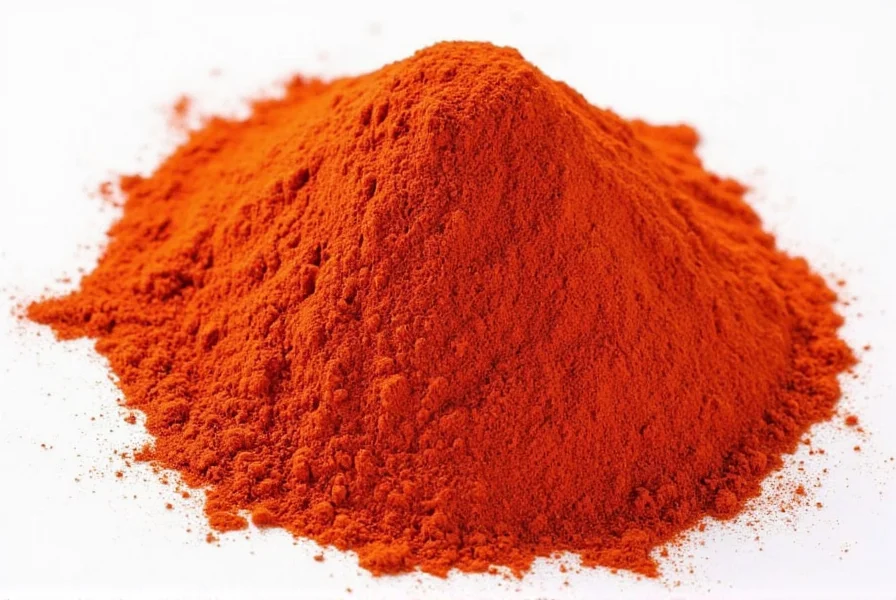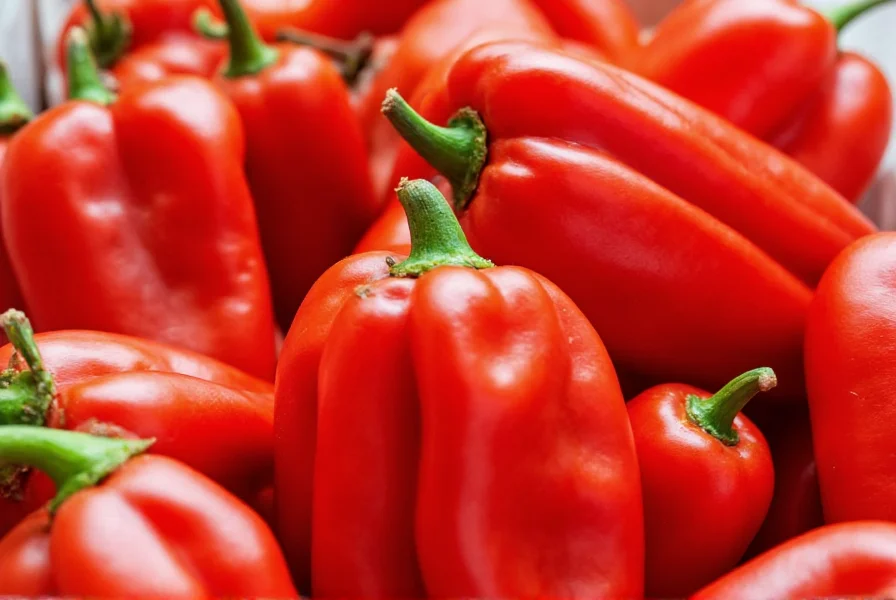Paprika isn't just a colorful kitchen staple—it's a nutritional powerhouse hiding in plain sight. This ground spice made from dried peppers delivers impressive health benefits while enhancing flavor profiles across global cuisines. Understanding is paprika good for you requires examining its nutritional composition, scientific research on its effects, and practical consumption guidelines.
Nutritional Profile of Paprika
One teaspoon (2g) of paprika contains:
| Nutrient | Amount per Teaspoon | % Daily Value |
|---|---|---|
| Calories | 6 | 0% |
| Vitamin A | 2000 IU | 40% |
| Vitamin E | 0.5 mg | 3% |
| Vitamin B6 | 0.1 mg | 5% |
| Iron | 0.3 mg | 2% |
The standout component is capsanthin—the carotenoid pigment responsible for paprika's red color and potent antioxidant properties of paprika. Research shows these compounds help neutralize free radicals that contribute to chronic diseases. Unlike many supplements, paprika delivers these benefits through food synergy—where multiple compounds work together for greater effect.

Science-Backed Health Benefits
Multiple studies confirm paprika's health-promoting qualities:
Powerful Antioxidant Protection
A 2022 review in Nutrients found paprika contains 24 different carotenoids with significant antioxidant capacity. These compounds protect cells from oxidative damage linked to heart disease and certain cancers. The paprika antioxidant properties particularly benefit eye health through lutein and zeaxanthin content.
Natural Anti-Inflammatory Effects
Research published in the Journal of Agricultural and Food Chemistry demonstrated that paprika extracts reduce inflammatory markers like TNF-alpha and IL-6. This makes is paprika good for inflammation a valid question with promising answers, especially for those managing chronic inflammatory conditions.
Vitamin A Powerhouse
Just one teaspoon provides 40% of your daily vitamin A needs—crucial for immune function, vision, and skin health. Unlike synthetic supplements, the beta-carotene in paprika converts to vitamin A only as your body needs it, preventing toxicity risks.
Important Considerations and Potential Concerns
While generally beneficial, several factors affect is smoked paprika good for you differently than sweet varieties:
Quality Variations Matter
Not all paprika delivers equal benefits:
- Sweet paprika: Highest in carotenoids but milder flavor
- Smoked paprika: Contains additional compounds from smoking process but may have lower antioxidant levels
- Hot paprika: Contains capsaicin (like chili peppers) which offers additional metabolic benefits
Medication Interactions
Paprika may interact with blood thinners due to vitamin K content. Those taking anticoagulants should maintain consistent intake rather than suddenly increasing consumption. The paprika side effects for most people remain minimal when used as a spice rather than supplement.
Appropriate Consumption Levels
While how much paprika should I eat daily depends on individual factors, culinary use (1-2 teaspoons per serving) presents no significant risks. Excessive consumption (multiple tablespoons daily) may cause:
- Mild digestive upset
- Skin flushing in sensitive individuals
- Potential heartburn exacerbation

Practical Usage Recommendations
To maximize the paprika nutritional benefits while minimizing potential issues:
Storage Tips
Keep paprika in an airtight container away from light and heat. Properly stored, it maintains potency for 6-12 months. Exposure to air and light degrades the valuable carotenoids that provide most health benefits.
Dietary Integration
Incorporate paprika into your diet through:
- Roasted vegetables (enhances absorption of fat-soluble vitamins)
- Homemade spice blends for meats and fish
- Vegetable soups and stews
- Deviled eggs or potato salads
The question is paprika healthy for weight loss has a nuanced answer—while paprika itself contains negligible calories, its flavor-enhancing properties can help reduce salt and sugar in dishes, supporting healthier eating patterns.
Paprika in Context: Comparing Spices
When evaluating is paprika good for you compared to other spices:
- Higher in vitamin A than turmeric or cumin
- Lower in curcumin (anti-inflammatory compound) than turmeric
- Contains different antioxidant profile than chili powder
- Generally gentler on digestion than extremely hot spices
This diversity explains why including multiple spices in your diet creates the most comprehensive health benefits.
Frequently Asked Questions
Does paprika have any proven health benefits?
Yes, research confirms paprika provides significant antioxidant protection through carotenoids like capsanthin. Studies show it reduces oxidative stress markers and offers anti-inflammatory effects. The vitamin A content supports immune function and vision health. These paprika nutritional benefits make it a valuable addition to a balanced diet when used regularly in cooking.
Can paprika help with inflammation?
Multiple studies indicate paprika has anti-inflammatory properties. The carotenoids in paprika, particularly capsanthin, reduce inflammatory markers like TNF-alpha and IL-6. This makes is paprika good for inflammation a relevant question with promising research, though it shouldn't replace medical treatment for chronic inflammatory conditions.
Are there any side effects of consuming paprika?
When used as a culinary spice, paprika rarely causes issues. However, excessive consumption may lead to digestive discomfort or heartburn in sensitive individuals. Those taking blood thinners should monitor intake due to vitamin K content. The paprika side effects are generally mild compared to many supplements, making it safe for regular use in normal food amounts.
How does smoked paprika compare to sweet paprika nutritionally?
Smoked paprika contains additional compounds from the smoking process but typically has slightly lower carotenoid levels than sweet paprika. Both varieties offer similar vitamin content, but the smoking process creates different flavor compounds. When considering is smoked paprika good for you, note that it provides unique benefits from the smoking process while maintaining most nutritional advantages of regular paprika.
Can paprika support weight loss efforts?
Paprika itself contains negligible calories, but its flavor-enhancing properties can help reduce salt and sugar in dishes. The question is paprika healthy for weight loss has merit because flavorful spices like paprika make healthy eating more enjoyable, potentially supporting long-term dietary adherence. However, paprika alone won't cause weight loss—it works as part of an overall healthy eating pattern.











 浙公网安备
33010002000092号
浙公网安备
33010002000092号 浙B2-20120091-4
浙B2-20120091-4